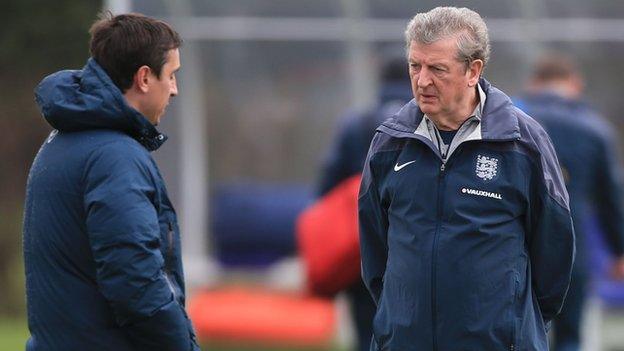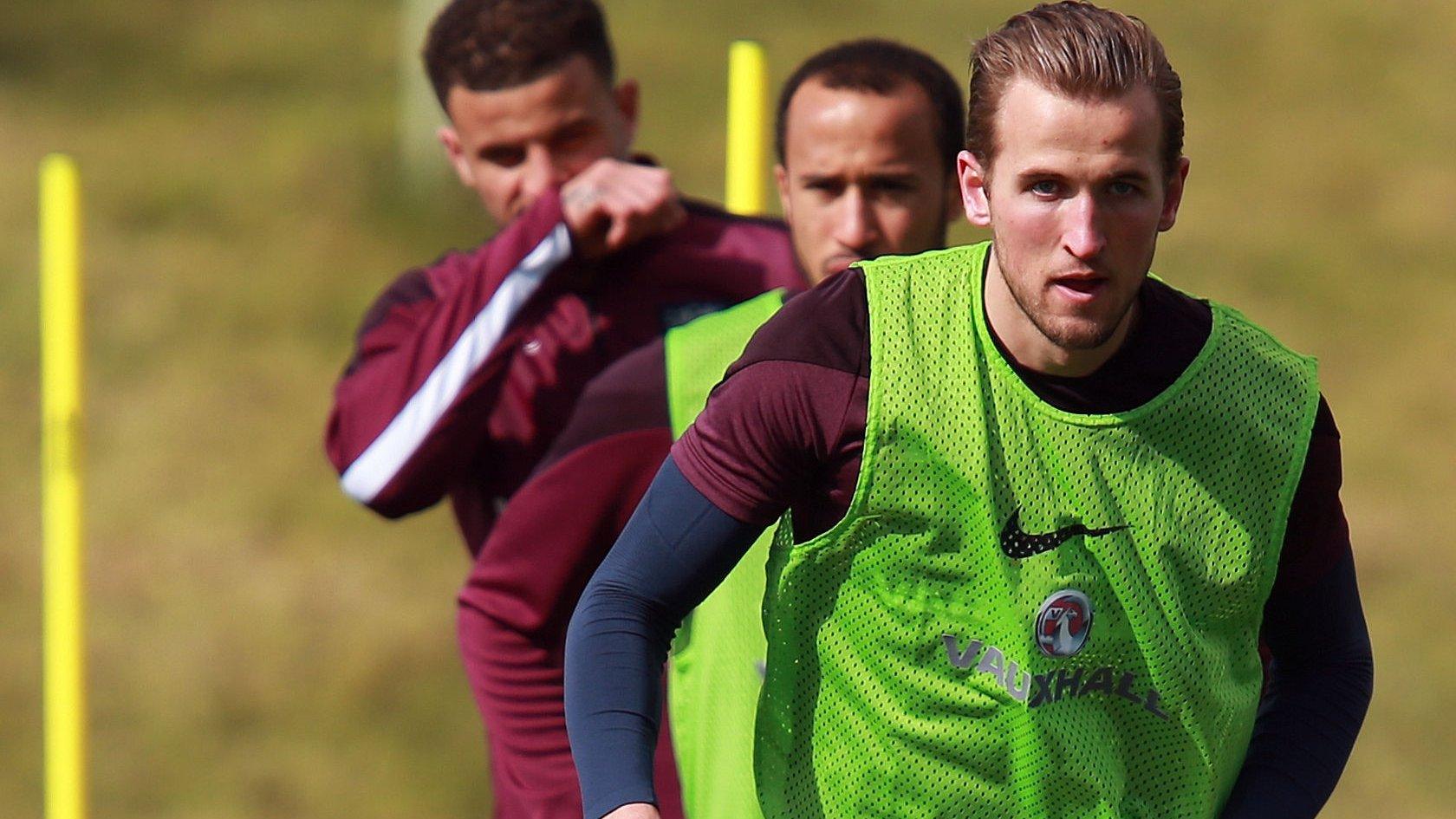Greg Dyke: Premier League agree to discuss 'home-grown' changes
- Published
Lack of English players pathetic - Dyke
Football Association chairman Greg Dyke says Premier League clubs have agreed to a consultation over his proposed changes to home-grown player rules.
Dyke, 67, created a commission in 2013 which aims to increase the number of English players in the Premier League.
His latest proposals include tightening rules on work permits and increasing the number of home-grown players in a club's first-team squad.
The FA wants 45% of players in the Premier League to be English by 2022.
That figure stood at 32% in the 2012-13 season, prompting Dyke to set up his commission.
But this week the head of football in England warned the Premier League was in danger of "having nothing to do with English people".
He said "bog-standard players" arriving from overseas are blocking the development path of English-born talent.
"If you look at who is playing in the Champions League, the English numbers compared to the Germans, the Spanish or the Brazilians, are pathetic," Dyke told the BBC's sports editor Dan Roan.
To widen the talent pool, Dyke has outlined ideas which focus on re-defining what constitutes a 'home-grown' player and promised stricter work-permit rules will come into force from 1 May.
Under Dyke's proposed new rules:
A player will have to have been registered with his club from the age of 15 - down from 18 - to qualify as 'home-grown'.
The minimum number of home-grown players in a club's first-team squad of 25 will increase from eight to 12, phased over four years from 2016.
Representatives from Premier League clubs met Dyke in London on Thursday and will now enter a period of consultation with the FA on the suggested rule changes.
Work permit changes - key points |
|---|
Currently, players must have played at least 75% of their country's internationals over the past two years. That will now change according to ranking. Players must play at least 30% of matches in the last two years if their country is in the top 10, 45% if ranked between 11th and 20th, 60% between 21st and 30th and 75% if between 31st and 50th. |
Players currently must have played for a country in the top 70 when rankings are averaged over two years. That will be lowered to the top 50. |
All players are currently measured over the last two years. The new regulations will allow leeway for players aged 21 or under to only fulfil the criteria for the previous 12 months. |
The FA estimates that 33% of the players who gained entry under the old system would not have been granted a work visa under the new rules. That means that over the last five years there would have been 42 fewer non-European players playing in the Premier and Football Leagues. |
Read more on the work permit changes on the FA website., external |
- Published26 March 2015

- Published26 March 2015

- Published26 March 2015

- Published26 March 2015

- Published26 March 2015

- Published26 March 2015

- Published20 June 2016

- Published7 June 2019

- Published2 November 2018
